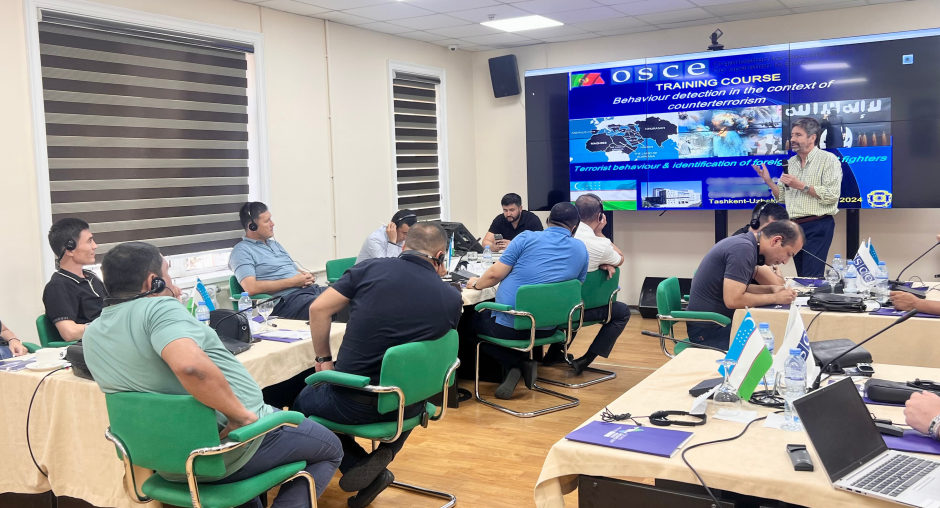OSCE course trained Uzbek border and customs officers in behavioural detection and interviewing

From 24 to 28 June, the Transnational Threats Department, in co-operation with the government of Uzbekistan, held a national training course on behavioural detection and interviewing techniques to be used at border crossing points in Uzbekistan. This course was attended by 15 first- and second-line border and customs officers.
Participants increased their skills for efficient and non-discriminatory decisions through the presentation of strategies that support real-time analysis to detect the pre-incident behaviours of suspected terrorists and other criminals.
Thematic experts from Belgium, Portugal, Romania and Uzbekistan provided input on behaviour detection models from passive observation to active engagement, the basics of human reactions, passenger risk indicators and analysis, nonverbal communication, insider threats, and interviewing and investigation techniques from. The facilitators also presented background and visual materials of known foreign terrorist fighter cases.
The practical simulation exercise portion of the course delivered at Tashkent International Airport aimed to sharpen the border and customs officers’ observation skills as well as their understanding of baseline and risk indicators in practice. To this aim, representatives of the airport branch of the Uzbek border service familiarized the participants and experts with operational procedures for checking passengers and cargos on site.
The course is part of the project “Strengthening the resilience of Uzbekistan to address cross-border challenges emanating from Afghanistan”, funded by Germany, Sweden and the United States.
